Chinese Medicine Regulatory Office
Site Menu
Diagnostic Methods and Features of Chinese Medicine Practitioners
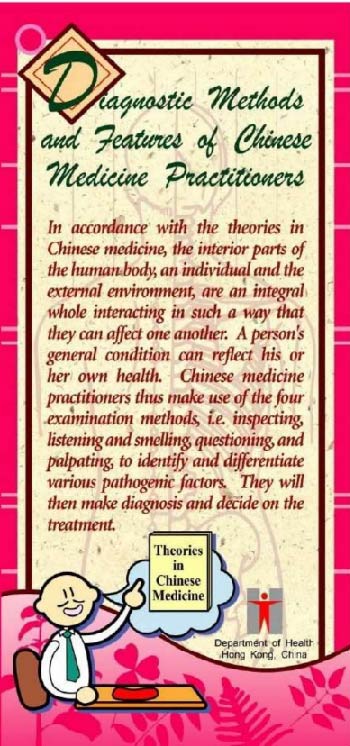
Diagnostic Methods and Features of Chinese Medicine Practitioners
In accordance with the theories in Chinese medicine, the interior parts of the human body, an individual and the external environment, are an integral whole interacting in such a way that they can affect one another. A person’s general condition can reflect his or her own health. Chinese medicine practitioners thus make use of the four examination methods, i.e. inspecting, listening and smelling, questioning, and palpating, to identify and differentiate various pathogenic factors. They will then make diagnosis and decide on the treatment.
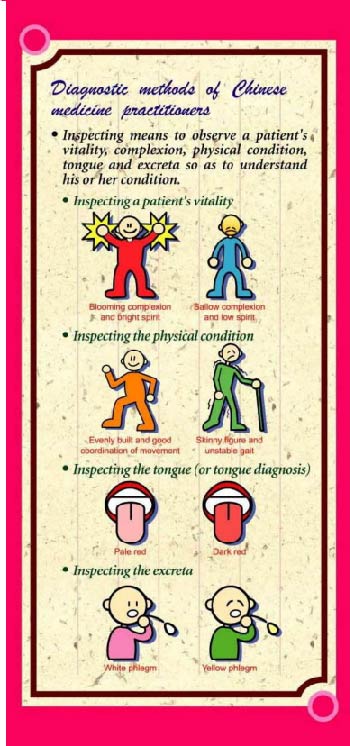
Diagnostic methods of Chinese medicine practitioners
Inspecting means to observe a patient’s vitality, complexion, physical condition, tongue and excreta so as to understand his or her condition. For example,
- Inspecting a patient’s vitality
Blooming complexion and bright spirit? Sallow complexion and low spirit? - Inspecting the physical condition
Evenly built and good coordination of movement? Skinny figure and unstable gait? - Inspecting the tongue (or tongue diagnosis)
Pale red? Dark red? - Inspecting the excreta
White phlegm? Yellow phlegm?
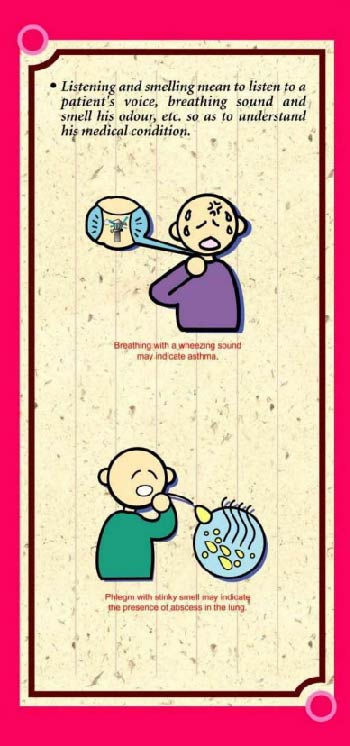
Listening and smelling mean to listen to a patient’s voice, breathing sound and smell his odour, etc. so as to understand his medical condition.
(e.g. Breathing with a wheezing sound may indicate asthma; Phlegm with stinky smell may indicate the presence of abscess in the lung.)
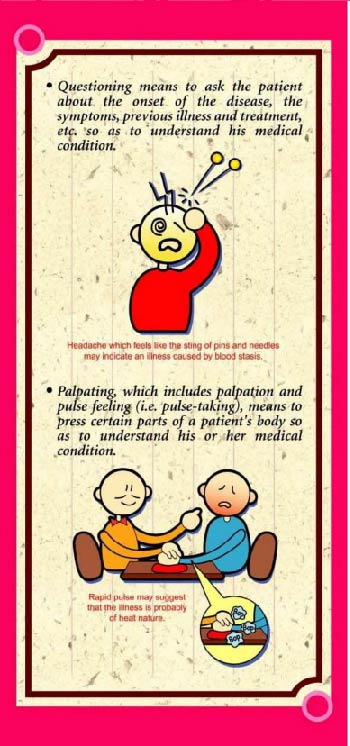
Questioning means to ask the patient about the onset of the disease, the symptoms, previous illness and treatment, etc. so as to understand his medical condition.
(e.g. Headache which feels like the sting of pins and needles may indicate an illness caused by blood stasis.)
Palpating, which includes palpation and pulse feeling (i.e. pulse-taking), means to press certain parts of a patient’s body so as to understand his or her medical condition
(e.g. Rapid pulse may suggest that the illness is probably of heat nature.)
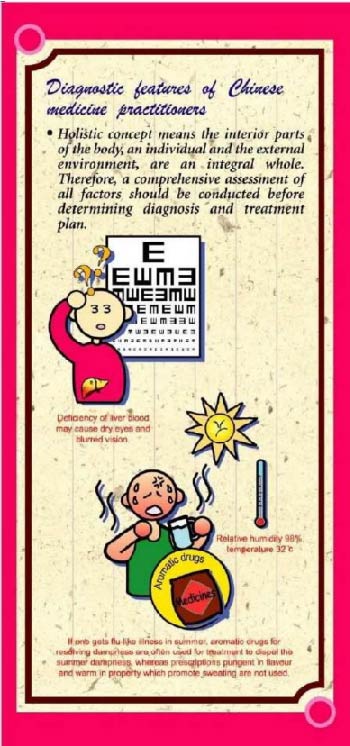
Diagnostic features of Chinese medicine practitioners
Holistic concept means the interior parts of the body, an individual and the external environment, are an integral whole. Therefore, a comprehensive assessment of all factors should be conducted before determining diagnosis and treatment plan.
(e.g. Deficiency of liver blood may cause dry eyes and blurred vision)
(e.g. If one gets flu-like illness in summer, aromatic drugs for resolving dampness are often used for treatment to dispel the summer dampness, whereas prescriptions pungent in flavour and warm in property which promote sweating are not used.)
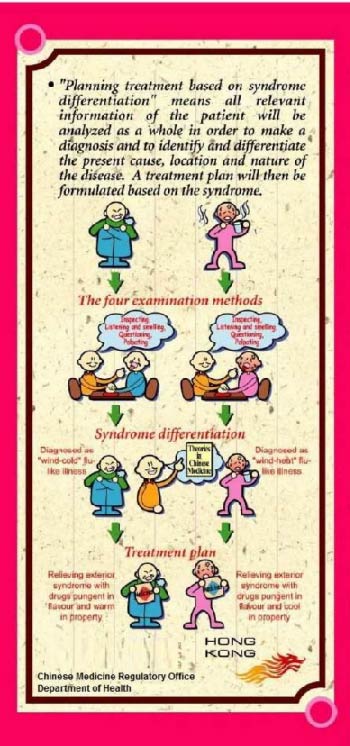
“Planning treatment based on syndrome differentiation” means all relevant information of the patient will be analyzed as a whole in order to make a diagnosis and to identify and differentiate the present cause, location and nature of the disease. A treatment plan will then be formulated based on the syndrome.
(e.g. Under the four examination methods, if one diagnosed as “wind-cold” flu-like illness, treatment plan of relieving exterior syndrome with drugs pungent in flavour and warm in property will be formulated ; if one diagnosed as “wind-heat” flu-like illness, treatment plan of relieving exterior syndrome with drugs pungent in flavour and cool in property will be formulated.)
Chinese Medicine Regulatory Office
Department of Health
Website: www.cmro.gov.hk